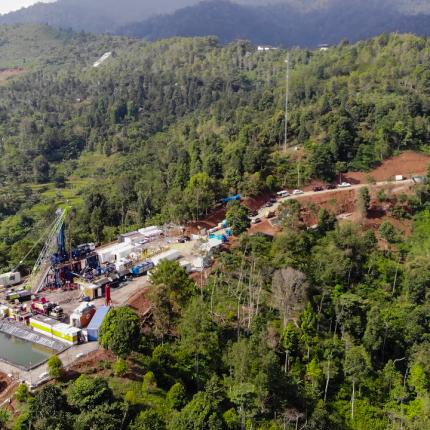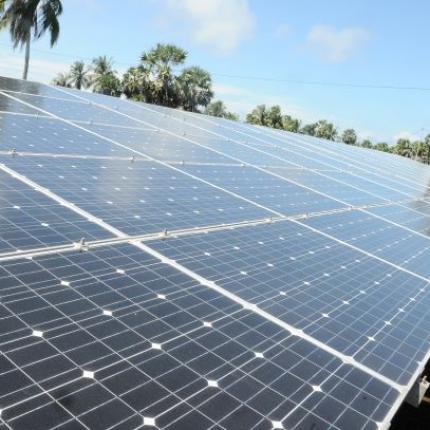Renewable Energy (RE) Pipeline Report

FOREWORD
This report has been jointly prepared by EBTKE and the Danish Energy Agency. The vision of the report is to create a pipeline in which the Indonesian electricity supply reaches a share of at least 23% renewable energy (RE) by 2025, as stated in the national energy policy, Kebijakan Energi Nasional (KEN). It collects data on power demand projections, renewable energy potentials, and aligns these with an RE pipeline. Indonesia is home to vast amounts of RE sources. Each region in Indonesia holds different potentials to develop expand the share of RE. In this report, the KEN target is reached by implementing five RE technologies across all regions, in Indonesia. However, actions must be accelerated and structured to ensure the required development of energy projects.
In essence, this report suggests a policy framework where regional quotas for RE capacity creates a pipeline of RE development towards 2025 and onwards. The RE pipeline can help kick start the RE project development and unlock the significant potentials, while setting a green trajectory in Indonesia. The development is feasible but can be improved and accelerated through an updated approach to energy planning where regionally set targets specifies capacities by regions to support the national energy planning. Furthermore, the proposed RE capacity additions are no threat to the security of supply. Many international examples have shown how conventional electricity grids can implement the first stages of variable RE without issues.
The recommendations in this report suggest changes that will communicate clear visions and development pathways to international investors and developers. From the perspective of foreign investors, Indonesia is a promising market but with an unclear route to reach the pledged energy and climate goals. This RE pipeline and its recommendations alleviates the uncertainty and risk-perception by investors. Hence, an RE pipeline will indirectly advance the environment for investments in RE and thereby help international finance in the Indonesian transition. Additionally, the recommendations aim to strengthen the vertical planning to help implementation of national targets. Provincial planning bodies can, in conjunction with national authorities, improve the planning for projects.
To acces the report click here






